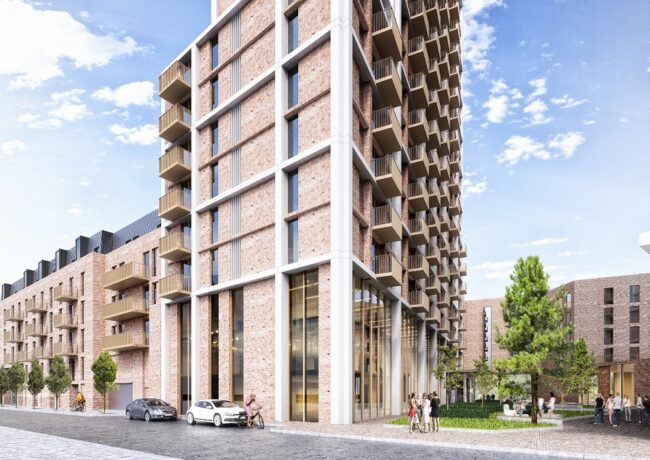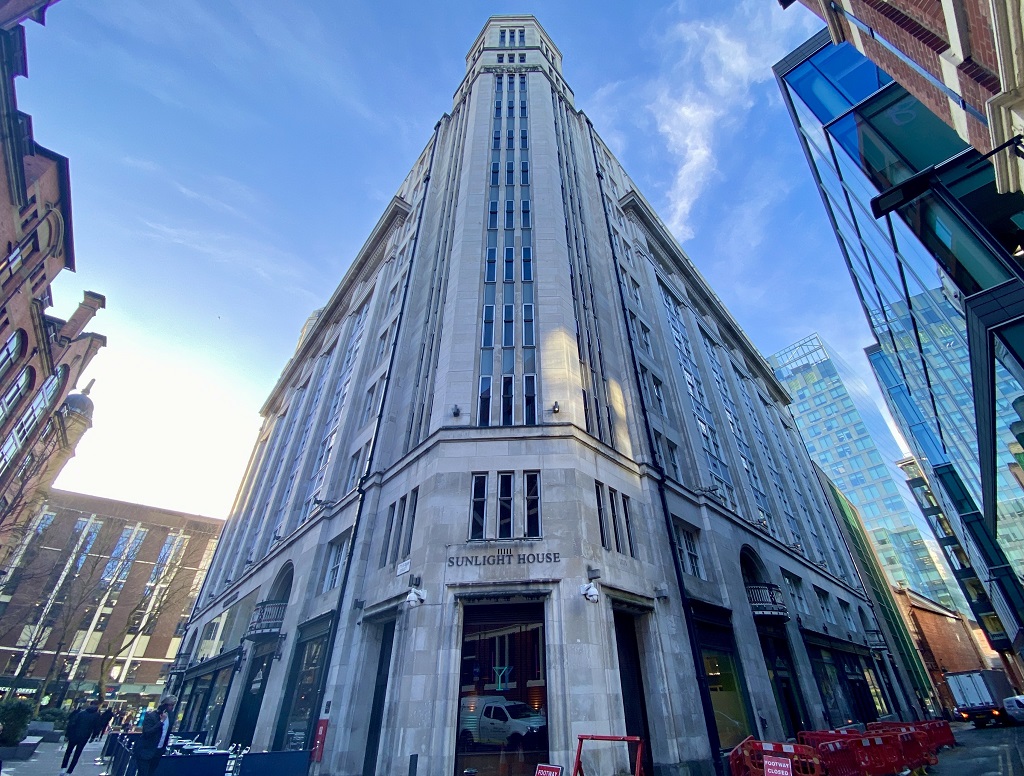Domis Property to start second PRS project for Fred Done
Domis Property Group, a main contractor set up by former Forrest boss Lee McCarren, is set to start on its second project for bookmaker Fred Done’s property development arm – the 22-storey The Crescent in Salford.
The contractor is due to start work on The Crescent, a private-rented residential project on the site of the former Black Horse pub, which has been demolished. 5plus is acting as architect for the scheme, which includes two towers of 22 and 17 storeys as well as a smaller block of six storeys.
Enabling works have completed on the site, and piling is set to start in the coming weeks.
Domis was set up by McCarren in April this year following his exit from Forrest, and has already begun its first job with Fred Done – the two-tower Trinity residential project on the site of the Black Friar pub in Salford.
Trinity is being developed by FCIM, another of Done’s development companies. FCIM’s directors include Simon Ismail, who is also listed as a director of Domis Property Group, alongside McCarren.
Ismail is also listed as a director of Salboy International and Citu NQ Management, both of which are linked to Fred Done’s property development businesses.
Done has received public finance including a Greater Manchester Housing Fund loan of £22.5m from the Greater Manchester Combined Authority to pay for construction of Trinity.
Overall, Fred Done’s property companies have more than 1,000 homes under construction across Greater Manchester.
Forrest has already started on Citu NQ, a 183-unit project on Tib Street in the Northern Quarter, while the site of a former nightclub in Astley Point, Wigan, has been redeveloped into 14 houses and 14 flats.





More public funds ploughed into unnafordable PRS schemes which are out of reach of local residents. To add insult to injury, Mr Done is worth several million and simply doesnt need public money to fund these monsterous schemes. Shameful.
By Daniel Baum
Great scheme bringing private sector investment into a booming area. Not all local residents wish to live in affordable (whatever that means) housing, some wish to benefit from high quality PRS scheme which of course has a price. As the old saying goes ‘ you get what you pay for’.
By Winston
Public sector funds, created with private sector wealth, used to fund more private sector wealth generation to pay for the public sector. That’s how it works isn’t it. OK so long as Fred’s personal wealth is supporting the loans. OK until voids and price pressure depresses the yield return to the fund. Ironic that it is likely a Labour govt will create a depresssion in the the PRS sector by capping rent growth, if over supply does not do it first
By JTC
I guess I am missing the story here. Is this catalysing regeneration by accelerating investment in a location and market segment that’s under-developed, and that’s the broader social purpose of this funding, and if so, what is the opportunity cost of another social purpose., Otherwise one might imagine Fred Done has the resources and business acumen to do in this own right, because that’s how free market, entrepreneurial people contribute to society by taking risks, making commensurate gain, and providing things that society needs.
By Rich
The social purpose is providing housing that wouldn’t otherwise be provided due to scheme viability or difficulty with financing. The loans get repaid with interest and are recycled to support more schemes. Regeneration benefits are an additional benefit I guess. Government rules prevent the investment of this pot of money in social housing.
There are all sorts of questions that could be asked about the criteria and operation of the fund such as design quality, planning obligations, who undertakes the viability assessments, who evaluates the developers claimed ‘need’ for the loan, how do they prioritise and pick schemes if the fund is over subscribed and so on.
That’s the theory anyway. In its basic purpose it’s clearly been successful in suppprting hundreds of extra units of housing.
By Anon